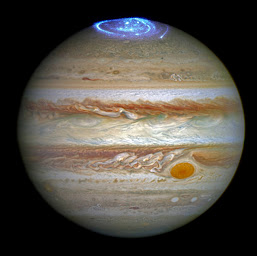Juno Mission – Revealing the secrets of the Solar System
What is Juno Mission
Juno is a NASA spacecraft. It was launched by NASA in the year 2011 to explore Jupiter. It traveled for five years and reached Jupiter in the year 2016. Since Juno did not land on the surface of Jupiter it is also called an ‘orbiter’. Juno is expected to make 37 rounds of Jupiter.
Aims of launching Juno Mission
- To determine quantity of water in Jupiter’s atmosphere
- Look deep into Jupiter’s atmosphere to measure its composition, temperature, cloud motions and other properties.
- To map the magnetic and gravity fields of Jupiter.
- To study and explore Jupiter’s magnetosphere near the planet’s poles, specially the auroras – the northern and southern lights of Jupiter.
Origin and Evolution of Solar System – How Juno can help?
Jupiter and other outer planets are primarily made up of gas. Earth and other inner planets are made up of rocky materials, therefore they are also called as terrestrial planets. The enormous mass of Jupiter allows it to continue holding into all the gasses it has accumulated at the time of its formation. Since its gasses have not changed since four billion years, studying the composition of Jupiter can provide us great insights into the evolution of solar system.

Planets like Jupiter are the cornerstone of planet formation. We cannot understand the origin of Solar system without knowing how Jupiter was formed.
Observation and analysis of the outer atmosphere of Jupiter is also likely to give us an indication of its interior. By measuring the amount of water in its atmosphere with the help of Juno we can estimate the amount of oxygen – a key component of water in Jupiter, an important step in understanding its formation.
As we are aware that Jupiter is mainly made up of same material from which the original Nebula was formed. The gasses present in its atmosphere hold clues about the origin of solar system.
Among the giant planets Jupiter is nearest to us hence studying Jupiter can also help us to augment our knowledge about planetary systems and other stars.
Conclusion
Our existence on earth largely depends upon the presence of oxygen. Learning how Jupiter acquired oxygen and other heavier elements can enable us to deepen our understanding about our very own origins.
References:
https://www.nasa.gov/audience/forstudents/k-4/stories/nasa-knows/what-is-juno-k4.html
https://www.nasa.gov/mission_pages/juno/overview/index.html

